#son of the sun : anárion
Explore tagged Tumblr posts
Note
[ TEARS ] from Azrûbel for Uncle Anárion
sender shows up at the receiver's door in tears and in need of comfort after a long day (or week, or month…)
Anárion looked up from his desk when one of his guards let himself in, looking a little circunspect.
"You have a visitor, Your Majesty," he announced, and before he could finish his sentence a young woman stormed in past him towards Anárion's desk, head bowed.
"Azrûbel?" Anárion exclaimed, surprised, when his niece plopped down on a chair before his desk. "What are you doing here?"
He paused, and took note of the tears streaming down her face, the shoulders shaking. What could have possibly brought her down from Arnor, and into his side of Gondor? He had half a mind to go pick up the seeing stone and contact his brother to come collect his daughter.
"What's wrong, child? Has something happened?"
@imbeorontiareare
1 note
·
View note
Text
Today (technically yesterday) has been the inauguration of the true holiday frenzy. I'm soothing myself with a random Tolkien poll (obviously skewed by my tastes):
If you only want to choose one of the people in a mother-son pair (whether mother or son), BZZZZZT don't vote for that one. Your vote goes to both mother and son.
#deliberately excluded some obvious heavy hitters like míriel-fëanor or dís-fíli (or kíli) or lúthien-dior#anghraine babbles#poll nonsense#legendarium blogging#more tags tomorrow it's been far too long a day to remember them all correctly
134 notes
·
View notes
Text





͝͏ ྀྀྀ୧‿̩͙⠀⠀⠀divine sun⠀⠀⠀⠀✚⠀⠀⠀⠀⠀⠀𓏼
⠀꣹۫⠀⠀⠀⠀npts ⠀ ͓ ̼͜ ͝͏ ྀི͜
⠀ names⠀⠀⠀⠀⠀⠀◞◟ ͜𓉯ྀ
aarish ◞ aaryamani ◞ akhiho ◞ akrun ◞ amahi ◞ adityawarman ◞ anamitra ◞ anárion ◞ asuhi ◞ athittaya ◞ ayaansh ◞ balzhinima ◞ birgün ◞ biyori ◞ changbok ◞ chang-min ◞ chiahi ◞ chiminigagua ◞ clarisol ◞ dela-malkh ◞ dérgréine ◞ diell ◞ drisana ◞ elianis ◞ fuyuhi ◞ grian ◞ gün ◞ günseli ◞ hae ◞ haleakalā ◞ harune ◞ haulwyn ◞ heli ◞ launxu ◞ minahi ◞ ama ◞ amaha ◞ amara ◞ amato ◞ asdvadzadur ◞ akito ◞ baotina ◞ caelum ◞ chunyeon ◞ dangius ◞ datian ◞ efuru ◞ ʻewalani ◞ gwang-ho ◞ gwang-min ◞ halani ◞ hạo ◞ hiệu ◞ hiʻilani ◞ sué ◞ himilrad ◞ hinerangi ◞ hinote ◞ hirai ◞ hizashi ◞ ho-seok ◞ hu ◞ hyeon-min ◞ ilhuicacihuatl ◞ Ipolani ◞ 'iwalani ◞ jou ◞ kagerō ◞ kaipolan ◞ sol
⠀ prns⠀⠀⠀⠀⠀⠀◞◟ ͜𓉯ྀ
sun ╱ suns ◞ divine ╱ divines ◞ prayer ╱ prayerself ◞ heaven ╱ heavens ◞ holy ╱ holys ◞ light ╱ lights ◞ bloom ╱ blooms ◞ sunny ╱ sunny's ◞ saint ╱ saints ◞ angel ╱ angelself ◞ summer ╱ summers ◞ ☀️ ╱ ☀️ s ◞ 🌞 ╱ 🌞s ◞ ⛅️ ╱ ⛅️s ◞ 🌤️ ╱ 🌤️s ◞ 🌇 ╱ 🌇s ◞ 🌻 ╱ 🌻s ◞ 🪽 ╱ 🪽s ◞ 👼 ╱ 👼s
⠀ titles⠀⠀⠀⠀⠀⠀◞◟ ͜𓉯ྀ
prn with the halo of fire ◞ the summers gift ◞ the angel of the sun ◞ divinity of the sun ◞ son of the sun ◞ daughter of the sun ◞ child of the sun ◞ child of the biggest star ◞ being of the sun ◞ one birthed from the sun ◞ prn whos born from the embers ◞ the summers blessing ◞ the loyalty to the stars ◞ the angel birthed from the sun
#⠀ ︵ ͜⌒ᅠᅠ shinju 𓏼ྀི#◟ ͜ ͝͏℘⠀⠀⠀⠀ mogai#mogaiblr#mogai coining#mogai blog#mogai term#pro mogai#mogai gender#mogai friendly#mogai flag#mogai#mogai safe#mogai community#npt request#npt help#npt suggestions#themed npt#npt set#npt blog#npt pack#npt ideas#npt list#liom community#liom flag#liom coining#liom term#liom safe#pro liom#liom#liomogai
46 notes
·
View notes
Text
There is, it turns out a secret beach that Elros Tar-Mintyaur had loved (“more than one” Elrond had said with a smile “but this was the first one he showed me”) and they have all been left alone - Pharazon and Sauron will be absent for days and something of a spirit of delight seems to have returned to Elrond in this breathing space that he would propose such a thing.
They all tumble down the path to a beautiful sheltered cove - clear waters, soft perfect sand. There is even a breeze and trees and a stream of fresh water so Adar might sit in the shade and be comfortable.
And somehow, no one thinks of anything but collecting shells, but running into the water, the joy of it against sun warmed skin and diving off one of the flat rocks or simply floating - as though the sea is cradling each of them.
And all of them play as though they are children again - Galadriel laughing on Finrods shoulders as she splashes water, Elrond diving for shells, Celebrimbor investigating rock pools and even Celeborn finds himself crowning his wife with the flowers that grow by the beach (then he might have pulled her into the water for a kiss, laughing as they had not been able to for so long).
Elendil, twirling Miriel in his arms. Miriel, a thousand memories of being a small girl with her father and mother and playing by the shores. Elendil remembering his children and smiling.
They only stop to eat and drink. And only leave when the stars are full in the sky - walking back laughing and singing and happy, despite everything.
It had taken far longer than expected and Ar-Pharazon knows that Tar-Mairon too is restless being so far from that which is most precious to them - this errand was necessary but it did not mean either of them liked it.
At least Pharazon knows his son is spending his time productively with Earien these days and he does seem to have tamed Valandil into behaving - it has had a good effect on Anárion too and Pharazon does approve of his children by marriage when they decide to behave.
But he misses his Elendil and Miriel
@themalhambird @plotdesigner @seagull-energy @nocompromise-noregrets @slightnettles @self-destructinganimal @conundrumoftime @eowyn7023 @theroguedragon @damnyoubishop
as ever if you want to be added to the taglist to get gold cages content like or comment on this post. Faithful!Kemen AU idea credit goes to @kenobiwaned 🫶🏼
17 notes
·
View notes
Text
The King of the Tower of the Moon masterpost

It is the year 3399 of the Second Age. Isildur with his family has survived the Fall of Númenor, and together with his father Elendil and his brother Anárion has founded the realms of Arnor and Gondor in Middle-Earth. The horrors experienced in Númenor have been left behind, and Isildur’s life has settled into its tracks in Ithilien, where preparations for the celebration of his son Elendur’s 100th birthday are currently underway. Everyone believes Sauron to have perished in the Fall of Númenor, but one day this belief will prove wrong. Isildur, Anárion, and Elendil must go to war in defence of their new homeland. The elves come to the aid of the dúnedain, and so begins the War of the Last Alliance, at the end of which Sauron will lose his Ring, never to regain it.
I'm honestly mostly doing this to procrastinate on editing the next chapter (I really don't like editing lol, it's tedious and annoying and requires so much thinking), but here's a list of all the chapter titles of the King of the Tower of the Moon, a longfic about Isildur and his family that I am translating to English!
The fic was originally in Finnish, and posted by Mithrellas with the title Kuun Tornin kuningas, first on a Finnish LOTR fanfic site in 2014-2016, and then on Ao3 in 2017-2018. My translation is of the version posted on Ao3
I may add other information to this post if and when I think of something about the fic that's relevant to mention, but for now, this will be only a list of the chapters, with links to each one that has been posted so far; currently I add new chapters about once every two weeks. Most recent update was on 2.3.2025
Please note that the translations of the titles for some of the as-yet unpublished chapters may change in the future, if I come up with more satisfying translations for them
Chapters:
1 - Servant of the Moon 2 - Unexpected Guests 3 - The White Tree 4 - Cockerels 5 - The Ball 6 - The White Queen 7 - Call of the Sea 8 - Not All Those Who Wander Are Lost 9 - In the Hall of the Mountain-King 10 - Miruvor 11 - Turning Points 12 - Theatre of Life 13 - Northmen 14 - Fresh Blood 15 - Sunshine in a Galenas-meadow 16 - The King’s Squire 17 - Lunar Eclipse 18 - Flames of Doom 19 - Under the Shadow 20 - The Oathbreakers 21 - A Woman from the Past 22 - Prodigal Sons 23 - Conflict 24 - Elostirion 25 - Gil-galad 26 - Surprises 27 - Friend from a Distant Land 28 - The Alliance 29 - The Heir 30 - The Council 31 - Lôminzil 32 - The Farewell 33 - The Brown Lands 34 - First of Many 35 - Vengeance 36 - His Father’s Son 37 - Separate Roads 38 - Eiliant 39 - The Wounded 40 - A Surprise Guest 41 - Solar Eclipse 42 - Weregild 43 - Riddles 44 - The Tower of the Sun 45 - A New Journey 46 - Holy Mountain 47 - The Promise 48 - The Last March 49 - The Departure of the King 50 - The Lonely Ones 51 - Cousin 52 - The Widow Queen 53 - A Light from the Shadows Shall Spring
* = the translation for this chapter is finished and more or less in a state where it can be posted
#isildur#elendil#elendur#aratan#ciryon#isildur's wife#lotr#lord of the rings#silmarillion#middle-earth#fanfic#silm fic#the king of the tower of the moon
3 notes
·
View notes
Text
Favourite Female Tolkien Character Poll - Round 1, Match 18
Both of these are from the tale of Aldarion and Erendis in Unfinished Tales. Character descriptions behind the cut!
Erendis
A woman of Númenor. She loved and, after a long courtship, married, Tar-Aldarion, the fifth king of Númenor; but they were frequently in conflict over his long sea-voyages, and his felling of the trees she loved in order to build more ships. He was away for seven years after they first met, and for five years during their courtship, followed rapidly by another four; and again for six years during their engagement. All these she endured, and loved him still; but when they were married and he left after their two-year-old daughter’s birthday and stayed away seven years, her heart cooled to bitterness, and she went away to live in the pasture-lands of Emerië and raised her daughter Ancalimë alone. When he returned she was cold to him, and he was unapologetic; and from that time they were estranged.
“[Men in Númenor] would be craftsmen and loremasters and great heroes all at once; and women to them are but fires on the hearth - for others to tend, until they are tired of play in the evening…To all they are gracious and kind, merry as larks in the morning (if the sun shines); for they are never wrathful if they can avoid it. Men should be gay, they hold, generous as the rich, giving away what they do not need. Anger they show only when they become aware, suddenly, that there are other wills in the world beside their own. Then they will be as ruthless as the seawind if anything dare to withstand them.
…do not bend, Ancalimë. Once bend a little, and they will bend you further until you are bowed down. Sink your roots into the rock, and face the wind, though it blow away all your leaves.”
Tar-Ancalimë
The daughter of Erendis and Tar-Aldarion, and first Ruling Queen of Númenor. Strong-minded and determined, she had no desire for marriage, and after a time her father rescinded the rule that by a certain age a female Heir must either marry or refuse the sceptre, due to her determination to do neither.
When she went into hiding as a shepherdess to avoid her suitors, she was courted by a supposed shepherd, and enjoyed his company; when revealed himself to in fact be a Númenorean noble suitor, Hallacar, she was angered at his deception.
“[If I wanted to marry a non-noble], I could lay down my royalty, and be free. But if I were to do so, I should be free to wed whom I will; and that would be Úner (which is “Noman”), whom I prefer above all others.
She did in fact marry him in time, though for political reasons not for love, and their marriage was unhappy. Their son was Tar-Anárion.
She ruled for 205 years, longer than any Númenorean ruler since Elros. After her father’s death she neglected his policies and gave no further aid to Gil-galad.
#favourite female tolkien character poll#erendis#tar ancalimë#unfinished tales#the silmarillion#numenor#numenoreans#tolkien
8 notes
·
View notes
Text

Frodo peering forward saw in the distance two great rocks approaching: like great pinnacles or pillars of stone they seemed. Tall and sheer and ominous they stood upon either side of the stream. A narrow gap appeared between them....
'Behold the Argonath, the Pillars of the Kings!' cried Aragorn....
As Frodo was borne towards them the great pillars rose like towers to meet him. Giants they seemed to him, vast grey figures silent but threatening. Then he saw that they were indeed shaped and fashioned: the craft and power of old had wrought upon them, and still they preserved through the suns and rains of forgotten years the mighty likenesses in which they had been hewn. Upon great pedestals founded in the deep waters stood two great kings of stone: still with blurred eyes and crannied brows they frowned upon the North. The left hand of each was raised palm outwards in gesture of warning; in each right hand there was an axe; upon each head there was a crumbling helm and crown. Great power and majesty they still wore, the silent wardens of a long-vanished kingdom. Awe and fear fell upon Frodo.... Even Boromir bowed his head as the boats whirled by... under the enduring shadow of the sentinels of Númenor. So they passed into the dark chasm of the Gates....
Sheer rose the dreadful cliffs to unguessed heights on either side.... The black waters roared and echoed, and a wind screamed over them. Frodo... heard Sam in front muttering and groaning:... 'What a horrible place! Just let me get out of this boat...!'
'Fear not!' said a strange voice behind him. Frodo turned.... In the stern sat Aragorn son of Arathorn, proud and erect...: a king returning from exile to his own land....
'Long have I desired to look upon the likenesses of Isildur and Anárion, my sires of old.'
2 notes
·
View notes
Text
#st paul-minneapolis friends what are your opinions
Sorry I am about to be so annoying on every level because I know too much about Tolkien and so this post has been driving me up the wall.
Gondor and Mordor are NOT cities, they are countries/regions, although I get the point and it is a good joke so under most circumstances I would mostly let it pass with only slight annoyance -- except!! There is an actual textual good/evil city dichotomy in LotR equivalent to what the OP of the tweet is describing. But it's not Gondor/Mordor, it's Minas Tirith/Minas Morgul! Which were originally founded in the Second Age as the twin fortresses of Minas Anor (Tower of the Sun) and Minas Ithil (Tower of the Moon). Their names came from the sons of Elendil -- Minas Anor was home to Anárion's ruling house, and Minas Ithil to Isildur's.
There is a lot of history that leads to this point but the key thing to know about the cities is that even though it was originally the larger of the two, Minas Ithil eventually fell to the Nazgûl and the other forces of Sauron and became known as Minas Morgul, a city of dark sorcery. A lot of the forces that went on to assault Gondor during the War of the Ring were based out of Minas Morgul, now turned to the enemy of its twin city. Minas Anor, on the other hand, became Minas Tirith, the seat of Gondor's government, as the kingship of the land belonged to the sons of Anárion.
In any case. I would say that neither Minneapolis or St. Paul is particularly evil in the current moment. From this we can clearly extrapolate that Minneapolis (larger, more bustling) is in great peril of eventually falling to the forces of evil and will one day likely wage war on St. Paul (the seat of government).
But that's just my two cents.

easily my favorite viral tweet from recently
14K notes
·
View notes
Text
I decided to figure out the Quenya elvish equivalents of my cats' names and this is what I came up with:
Luna: Silmea, "of the moon" Stella: Elerrína, "crowned with stars" Apollo: Anárion, "son of the sun"
Since my roommate's cat Moki's name doesn't have a meaning I initially left her out, but then I realized that "moki" is an early form of "mocir", which means "I hate". And Moki hates everything. She already has the perfect Quenya name.
Cat photos below the break.
Luna/Silmea

Stella/Elerrína

Apollo/Anárion

Moki/Moki

1 note
·
View note
Photo
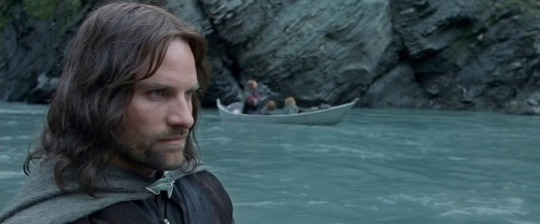
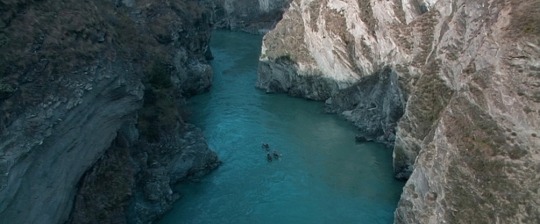
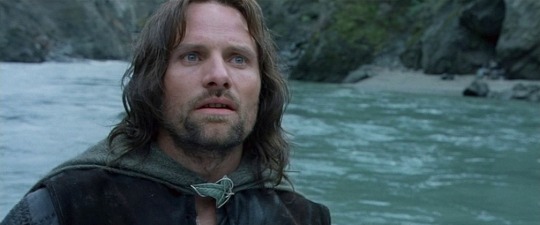
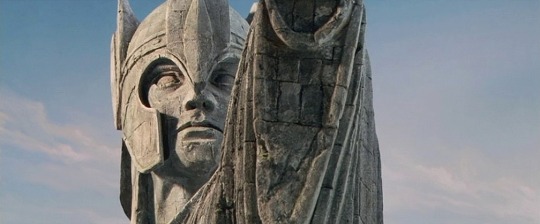
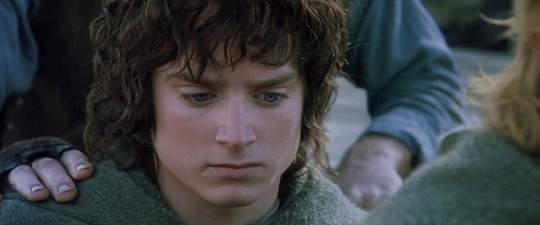

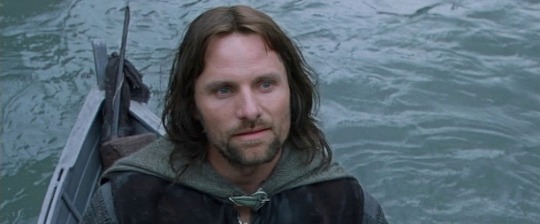

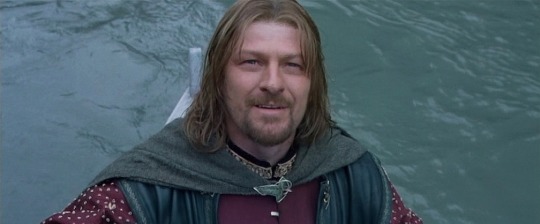
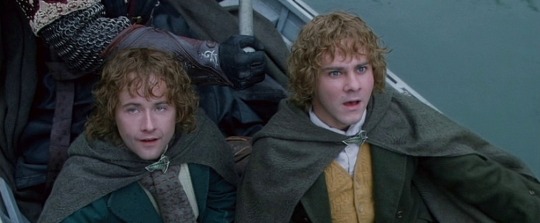
Before the travellers lay a wide ravine, with great rocky sides to which clung, upon shelves and in narrow crevices, a few thrawn trees. The channel grew narrower and the River swifter. Now they were speeding along with little hope of stopping or turning, whatever they might meet ahead. Over them was a lane of pale-blue sky, around them the dark overshadowed River, and before them black, shutting out the sun, the hills of Emyn Muil, in which no opening could be seen.

Frodo peering forward saw in the distance two great rocks approaching: like great pinnacles or pillars of stone they seemed. Tall and sheer and ominous they stood upon either side of the stream. A narrow gap appeared between them, and the River swept the boats towards it.
`Behold the Argonath, the Pillars of the Kings!' ...
... cried Aragorn. `We shall pass them soon. Keep the boats in line, and as far apart as you can! Hold the middle of the stream! '
As Frodo was borne towards them the great pillars rose like towers to meet him. Giants they seemed to him, vast grey figures silent but threatening. Then he saw that they were indeed shaped and fashioned: the craft and power of old had wrought upon them, and still they preserved through the suns and rains of forgotten years the mighty likenesses in which they had been hewn. Upon great pedestals founded in the deep waters stood two great kings of stone: still with blurred eyes and crannied brows they frowned upon the North.
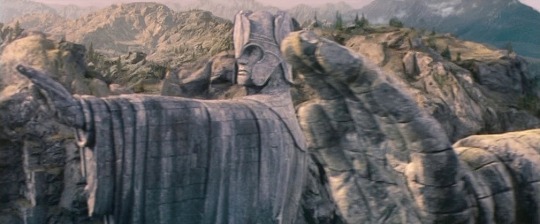
The left hand of each was raised palm outwards in gesture of warning; in each right hand there was an axe; upon each head there was a crumbling helm and crown. Great power and majesty they still wore, the silent wardens of a long-vanished kingdom. Awe and fear fell upon Frodo, and he cowered down, shutting his eyes and not daring to look up as the boat drew near. Even Boromir bowed his head as the boats whirled by. frail and fleeting as little leaves, under the enduring shadow of the sentinels of Númenor. So they passed into the dark chasm of the Gates.
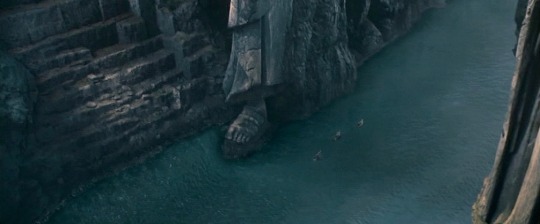
Sheer rose the dreadful cliffs to unguessed heights on either side. Far off was the dim sky. The black waters roared and echoed, and a wind screamed over them. Frodo crouching over his knees heard Sam in front muttering and groaning: `What a place! What a horrible place! Just let me get out of this boat, and I'll never wet my toes in a puddle again, let alone a river! '
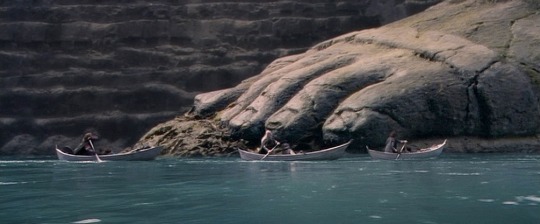
`Fear not! ' said a strange voice behind him. Frodo turned and saw Strider, and yet not Strider; for the weatherworn Ranger was no longer there. In the stern sat Aragorn son of Arathorn, proud and erect, guiding the boat with skilful strokes; his hood was cast back, and his dark hair was blowing in the wind, a light was in his eyes: a king returning from exile to his own land.
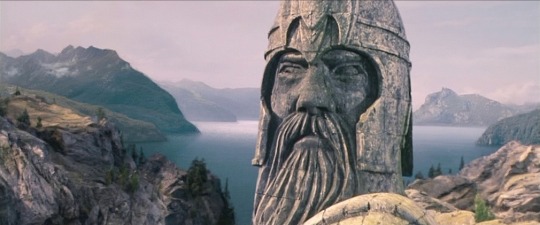
'Fear not! ' he said. `Long have I desired to look upon the likenesses of Isildur and Anárion, my sires of old. Under their shadow Elessar, the Elfstone son of Arathorn of the House of Valandil Isildur's son heir of Elendil, has nought to dread! '
Then the light of his eyes faded, and he spoke to himself: `Would that Gandalf were here! How my heart yearns for Minas Anor and the walls of my own city! But whither now shall I go?'
The chasm was long and dark, and filled with the noise of wind and rushing water and echoing stone. It bent somewhat towards the west so that at first all was dark ahead; but soon Frodo saw a tall gap of light before him, ever growing. Swiftly it drew near, and suddenly the boats shot through, out into a wide clear light.

The sun, already long fallen from the noon, was shining in a windy sky. The pent waters spread out into a long oval lake, pale Nen Hithoel, fenced by steep grey hills whose sides were clad with trees, but their heads were bare, cold-gleaming in the sunlight. At the far southern end rose three peaks. The midmost stood somewhat forward from the others and sundered from them, an island in the waters, about which the flowing River flung pale shimmering arms. Distant but deep there came up on the wind a roaring sound like the roll of thunder heard far away.
`Behold Tol Brandir!' said Aragorn, pointing south to the tall peak. 'Upon the left stands Amon Lhaw, and upon the right is Amon Hen the Hills of Hearing and of Sight. In the days of the great kings there were high seats upon them, and watch was kept there. But it is said that no foot of man or beast has ever been set upon Tol Brandir. Ere the shade of night falls we shall come to them. I hear the endless voice of Rauros calling.'

JRR Tolkien, The Lord of the Rings, The Fellowship of the Ring, The Great River
#the lord of the rings#the fellowship of the ring#the great river#jrr tolkien#anduin#argonath#isildur#anárion#nen hithoel#amon lhaw#amon hen#tol brandir#falls of rauros#aragorn#boromir#legolas#gimli#frodo#sam#merry#pippin#movie pics#peter jackson
105 notes
·
View notes
Note
!
@melino-arafinwion
(Meliniel)
Anárion gazed at the woman in front of her with curiosity. Gone were the days when the Elves of Tol Eressëa graced them with their prsence; he had not expected to run into one at the harbor that morning.
"Are you lost, Lady?" He asked, eyebrows raised.
@melino-arafinwion
#melinoarafinwion#son of the sun : anárion#he gets little action so i figured I'd use Anárion here#also setting this in Andúnië because I don't get to write Númenor as often as I would like#hope this works for you! if not lmk and I'll change it
2 notes
·
View notes
Text



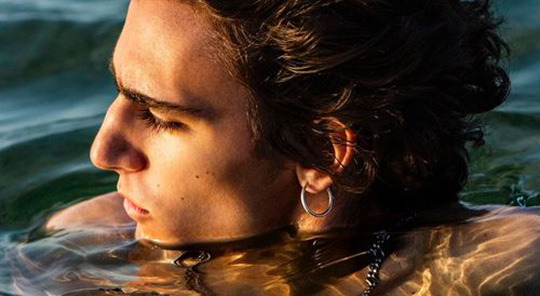


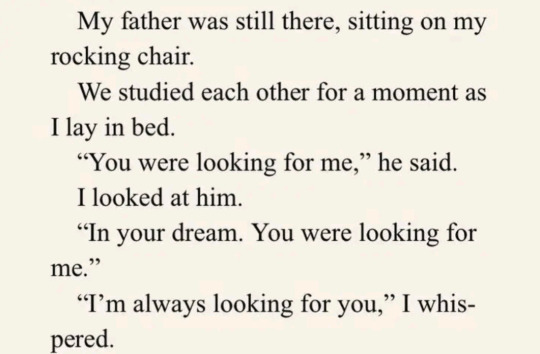



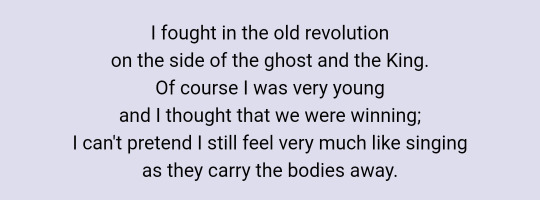


web weaving for Anárion (fancast as Tamino)
Anárion is a Quenya name. It likely means “Son of the Sun” and is a compound of anar (“sun”) and the patronymic suffix -ion (“son of”)
Isildur is a Quenya name, meaning “Servant of the Moon”, from Ithil (“Moon”) + -dur (“servant”).
Narsil is a Quenya name meaning “red and white flame”. The name is said to consist of the stems NAR (“fire”) + THIL (“white light”). It was a symbolic name, pointing to the Sun and the Moon, the “chief heavenly lights, as enemies of darkness”.
||Tolkien's 'Firiel's song'; Nina Mouawad 'Blue Sun: A poetry collection'; Don’t Carry It All; The Decemberists; The Rings of Power; Aristotle and Dante Discover the Secrets of the Universe by Benjamin Alire Saenz; Fortesa Latifi; The Old Revolution - Leonard Cohen||
#anarion#web weaving#tolkien#numenor#lotr#rings of power#the rings of power#rop#trop#isildur#elendil#narsil#gondor#lord of the rings#mygraphic#mygraphics#mywebs
167 notes
·
View notes
Photo

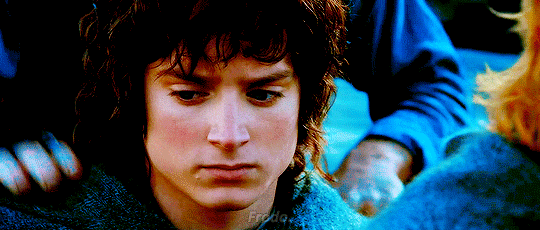


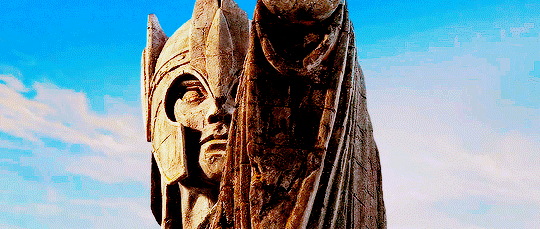





Tolkien Week 2021 | Week One, Day Five: Free Choice - From Page to Screen
"Behold the Argonath, the Pillars of the Kings!" cried Aragorn. "We shall pass them soon. Keep the boats in line, and as far apart as you can! Hold the middle of the stream!"
As Frodo was borne towards them the great pillars rose like towers to meet him. Giants they seemed to him, vast grey figures silent but threatening. Then he saw that they were indeed shaped and fashioned: the craft and power of old had wrought upon them, and they still preserved through the suns and rains of forgotten years the mighty likenesses in which they had been hewn. Upon great pedestals founded in the deep waters stood two great kings of stone: still with blurred eyes and crannied brows they frowned upon the North. The left hand of each was raised palm outwards in gesture of warning; in each right hand there was an axe; upon each head there was a crumbling helm and crown. Great power and majesty they still wore, the silent wardens of a long-vanished kingdom […]. Even Boromir bowed his head as the boats whirled by, frail and fleeting as little leaves, under the enduring shadow of the sentinels of Númenor. So they passed into the dark chasm of the Gates.
"Fear not!" said a strange voice behind him. Frodo turned and saw Strider, and yet not Strider; for the weather-worn Ranger was no longer there. In the stern sat Aragorn son of Arathorn, proud and erect, guiding the boat with skilful strokes; his hood was cast back, and his dark hair was blowing in the wind, a light was in his eyes: a king returning from exile to his own land.
"Fear not!" he said. "Long have I desired to look upon the likenesses of Isildur and Anárion, my sires of old. Under their shadow Elessar, the Elfstone son of Arathorn of the house of Valandil Isildur's son, heir of Elendil, has nought to dread!"
- J.R.R. Tolkien, The Fellowship of the Ring
#FilmEdit#FantasyEdit#TolkienEdit#LotREdit#FotREdit#Film: The Lord of the Rings#The Lord of the Rings: The Fellowship of the Ring#Frodo Baggins#Samwise Gamgee#Meriadoc Brandybuck#Peregrin Took#Aragorn#Boromir#M.#Marthe's GIFs#TolkienWeek#Tolkien Week#1000
2K notes
·
View notes
Text
April Tolkien Challenge; Day 6
Andúril
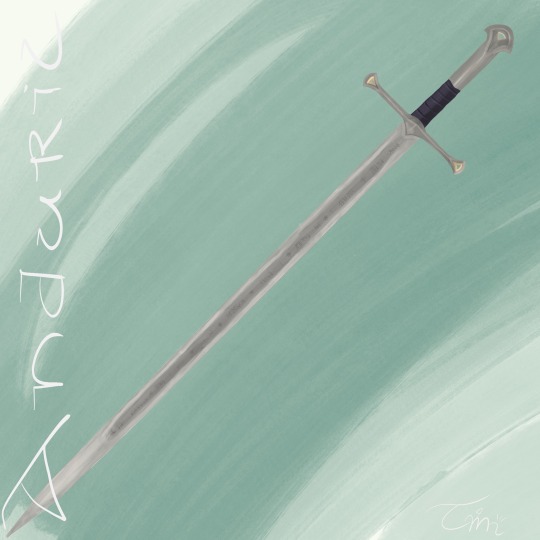
tap picture for better quality
——
Andúril (or "Flame of the West") is the sword that Aragorn II Elessar wielded in the infamous Lord of the Rings books. The blade was reforged from the shards of Narsil, which was the sword of King Erendil, used by his son Isildur to cut the One Ring off of Sauron's hand.
"Its blade had engraved the designs of Seven Stars between the rayed Sun and the crescent Moon, symbols of Elendil, and his sons Anárion and Isildur. It also had many cirth."
Aragorn carried the blade with him the entire length on the journey to Mordor, after it was reforged by the elves of Rivendell when the Council of Lord Elrond had ended. Upon arriving in Lothlorién after Gandalf's supposed death, Lady Galadriel gave the man a sheath for the blade, as a gift for the oncoming journey.
Later, in Rohan, Aragorn showed his sword to justify his words and show his heritage to Éomer. With the weapon, he reclaimed his heritage and rights to the throne of Gondor in Return of the King.
——
Sources: -One Wiki To Rule Them All, Andúril -One Wiki To Rule Them All, Narsil -Tolkien Gateway, Andúril -The Two Towers, JRR Tolkien -Return of the King, JRR Tolkien
#april tolkien challenge#jrr tolkien#Tolkien#lotr#lord of the rings#Aragorn#Andúril#Narsil#the hobbit#the silmarillion#unfinished tales#history of middle earth
22 notes
·
View notes
Text
Time travel idea: someone (mortal and preferably under 300 years old) from the later Third Age time-travelling to the Second Age on Elendil's, Isildur's or Anárion's ship during the fall of Númenor. Later they could end up in Lindon, Rivendell, newly established Gondor etc.
Aragorn would be fun, considering he is the biggest fanboy of Isildur and Elendil and very proud of his heritage. Potential for clever banter, secrecy, and a reunion of Aragorn with Second Age Elrond who doesn't recognize him.
Faramir would probably be fanboying just as much, also an exemplary Dúnadan. Add to that his fall of Númenor dreams. Potential for everything.
Imrahil or one of his sons. They love the sea but currently are conflicted between freaking out about being next to Elendil, Isildur, or Anárion, and freaking out about the seastorm.
Éomer, simply because he is from a very different culture (despite having some dúnadan blood) and sending him on the sea with people from myths could be fun. Does he get sea-sick?... Then again, everyone would in that situation.
Possibly Pippin or other hobbits because the baffled expressions on the faces of the Númenoreans would be worth it.
Sam so he can meet Gil-galad, but poor boy doesn't deserve to be send on a ship - least of all while the world is getting round and sea levels rising.
Bilbo on Elendil's ship. You can't convince me he wouldn't immediately befriend everyone there, and then Gil-galad and Círdan and Elrond again (Elrond is confused why is this tiny being he met five seconds ago acting like they are best friends but he rolls with it).
Bilbo on Isildur's ship, simply due to the Ring business about which Isildur has no idea (yet), as well as possibly meeting Celebrían if she is in Belfalas.
Thorin. Most men he has met are probably either from Eriador or Lake Town - now get ready for freakishly tall Elendil with his shiny dwarven-made sword.
Legolas. He doesn't fit the requirements for a time-travelling character I mentioned in the first paragraph, but don't tell me Mr I-go-to-find-the-sun wouldn't be hilarious and yelling things like 'oi! a large wave!'. Possible angst due to the sea longing. If he starts singing the nice sad sea song again, I swear-
#the most cursed idea: aragorn AND barliman butterbur time-travelling. together.#:)#okay i should stop#but there is so much potential?#second age#lord of the rings#lotr#silmarillion#elendil#isildur#anarion#time travel au#i apologize for weird sentences and spelling mistakes i will probably notice them in a few days when it's too late :)
56 notes
·
View notes
Photo




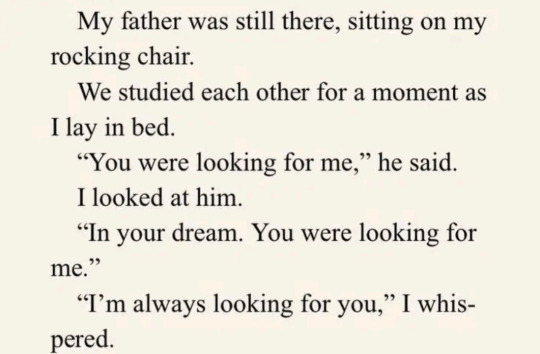
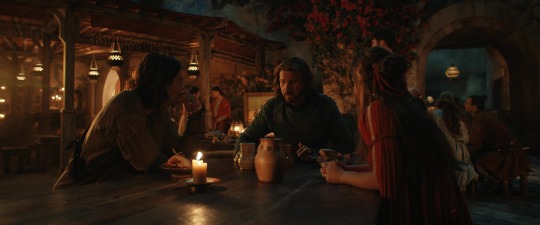

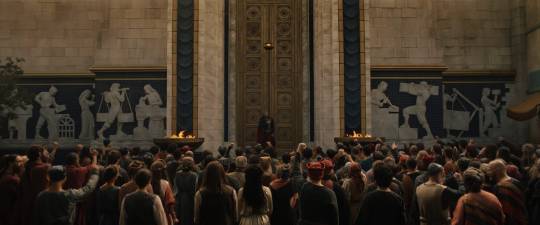


Anárion is a Quenya name. It likely means "Son of the Sun" and is a compound of anar ("sun") and the patronymic suffix -ion ("son of")
Isildur is a Quenya name, meaning "Servant of the Moon", from Ithil ("Moon") + -dur ("servant").
Narsil is a Quenya name meaning "red and white flame". The name is said to consist of the stems NAR ("fire") + THIL ("white light"). It was a symbolic name, pointing to the Sun and the Moon, the "chief heavenly lights, as enemies of darkness".
||Nina Mouawad, Blue Sun: A poetry collection; Tamino; Don’t Carry It All; The Decemberists; The Rings of Power; Aristotle and Dante Discover the Secrets of the Universe by Benjamin Alire Saenz; Fortesa Latifi; The Old Revolution - Leonard Cohen||
#;;anarion#;;isildur#;;narsil#;;quotes#listen... this has been rattling around in my head for ages and I just had to postit#I have been SICK I have lost my LApTOP I have been super outof it but I promise i am still thinking about anarion all the time
3 notes
·
View notes